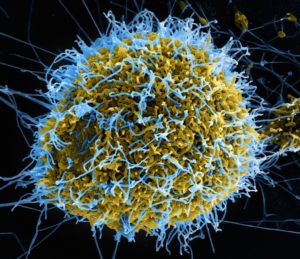
Cryptosporidium is difficult to battle because it is highly resistant to chlorine. It is the leading cause of waterborne diseases for people in the U.S. – Service Industry News 9-30-16
Toxoplasma and Cryptosporidium oocysts are highly resistant to chlorine disinfection. – CDC.gov .
You can read the full article from Service Industry News below.
“Hundreds of people in Ohio and Arizona were infected with cryptosporidium this summer, linked to recreational water facilities, public health officials said.
This September, there were more than 600 people in Columbus, Franklin, and Delaware, Ohio, infected with the parasite. The patients reported possible exposures to the disease from multiple different aquatic venues, meaning that the outbreak is not tied to any one location.
The number of cases more than tripled in a matter of three weeks. The outbreak is the largest the Ohio counties have seen in 15 years, where 400 cases of cryptosporidium is normal for the entire state for a year. More than half of the reported cases are people under 18.
Growing concern about the magnitude of the outbreak caused health officials to reach out to pool operators and water facility managers, urging them to hyper-chlorinate their aquatic venues.
In mid August, the4 city health department asked all community pools in Columbus and Franklin County to disinfect their pools, maintaining chlorine at 20 ppm for at least 12 hours.
On Aug. 19, public pools and other recreational water facilities responded by temporarily closing their pools for preventative maintenance and hyper chlorination before reopening when the chemical levels fell to a safe level.
Nonetheless, the numbers of reported infected persons continued to rise: 100 cases on Aug. 11, 200 cases on Aug. 18, 400 cases on Aug. 30 and 600 cases on Sept. 8. The number of cases are expected to continue to increase before they begin to decline with the end of the swimming season. Although most of Ohio’s public pools closed after Labor Day, because the incubation period of cryptosporidium is up to two weeks, officials expect things to get a little worse before they get better.
Meanwhile, also this August, more than 100 people in Maricopa County, Arizona, were infected with cryptosporidium, and the parasite was believed to have contaminated at least 20 community swimming pools.
County officials pointed to splash pads, water parks, and public pools that may have been compromised by the organism but declined to identify specific facilities.
According to Dr. Rebecca Sunenshine, Maricopa County’s medical director, there is no reliable test to detect cryptosporidium in water, so it is difficult to point to the source of the outbreak.
Furthermore, the 100 or so reported cases was likely only the tip of the iceberg, since not everybody infected with Crypto experiences symptoms or seeks medical treatment even if they do.
For this reason, the disease is highly contagious with infected people spreading the illness through contact with others, particularly in public pools.
Courtney Kreuzewiesnr, a public health official, said that mostly children were affected by the outbreak in Arizona. The flu-like symptoms can last anywhere from 1 to 4 weeks. Most people recover on their own but there are FDA approved drugs to combat the disease.
Cryptosporidium is difficult to battle because it is highly resistant to chlorine. It is the leading cause of waterborne diseases for people in the U.S. – Service Industry News 9-30-16”
